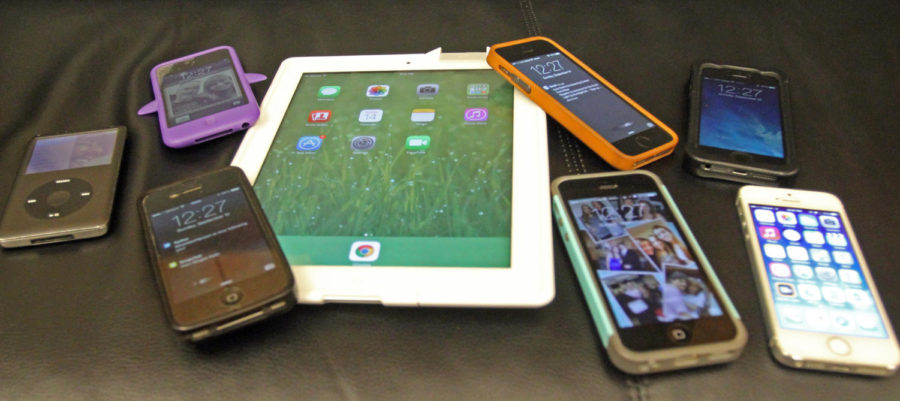Ethiraj: Apple overhypes products
Technology can be a great help when it comes to everyday tasks, but have we let technology run the way we live our lives?
September 14, 2014
Ah, the iPhone 6 is officially here. I can only imagine the face of an iPhone 5s user who is dying to upgrade from a 4 inch screen to a 4.7 inch screen. And that .7 inch increase makes all the difference for someone to shell out “just” $199, along with an expensive two-year contract to jump onto the bandwagon and praise Apple for its innovations.
One thing that has been common before every Apple product launch is the hype. An undeserved hype that distracts people from Ray Rice, the Islamic State group or even the Ebola outbreak. It deeply saddens me to see people give in to this hype and make uninformed decisions and waste their time and money on products that sell with a nearly 40 percent profit margin.
The only thing Apple has mastered—other than making bigger screens—is the art of creating hype around its product.
It usually goes like this. It starts with rumors of “new features” in the upcoming iPhone models. And then, out of nowhere, a Reddit user posts “leaked” pictures and specifications of the new iPhone.
But this is where it gets me. A company that cannot keep its own iPhone documents confidential promises to keep your personal files and credit card information safe and sound.
Well, next comes the anticipation of the announcement date. The Verge, Gizmodo, the Huffington Post and other geeky websites try everything from black magic to astrology to predict the announcement date until Apple ends up trending on both Facebook and Twitter.
When we get to the actual launch event, Apple milks your patience even more for the first hour and a half by flattering itself over how wonderful its previous products were and why it is the single best thing in the world.
At the end of the event, a handful of paid-to-write-good-things-about-Apple bloggers and internet reviewers get their hands on the products to review and flood your news feed with more Apple content.
Following the launch event, Apple opens up online preorder sales. Just as expected, it sells out all of its initial shipment and sets an “all time record in orders,” which generates more curiosity among people who did not preorder the product.
Apple throws out one bone at a time to generate enough hype that the national “breaking news” turns out to cover long lines of people camping outside Apple stores when products go on sale.
Finally the dust settles when all the people get their new iPhones and they collectively realize, “Oh crap! I blew my credit card for this?”
They realize that the “new” iPhone flaunts similar features that Google’s Android phone users have been enjoying for several years now. NFC payment? HD display? 1080p camera? Been there and done that is what Windows and Android phone makers would say.
But still people continue to flock to the stores to get their iPhone orders in, thanks to the elaborate public relations hype Apple creates.
Admittedly, Apple makes good products with great designs. But what we as users need to understand is how to differentiate between hype and an actual innovation.
Amazon’s Fire Phone with dynamic perspective is innovation. Windows’ Nokia Lumia 1020 with a 41-megapixel camera sensor is innovation. Samsung Galaxy phones with no-touch air gestures is innovation. Apple’s bigger screen is not innovation.
As a company, Apple is doing what it takes to make sure its products get enough attention, which is justifiable. But what is not justifiable is obsessing over them.
There is an obvious incentive for media to cover Apple because such stories garner more views, which in turn generate revenue and viewership. But as consumers, we should not give into such hype.
Before you make your next Apple purchase, think twice. Do you need a shiny, half-eaten Apple as a logo or could you use that additional $200 for your rent? Try to use tools on websites that compare different phones and their specifications to better understand what you are paying for.
Don’t give into the “we have over a million apps in our app store” sales pitch. Realistically you are never going to use all of them, nor is your phone capable of holding them.
Whatever you do, try to make a well-informed decision. Because in the future, your iWater might be no different than my tap water. Heads up.







